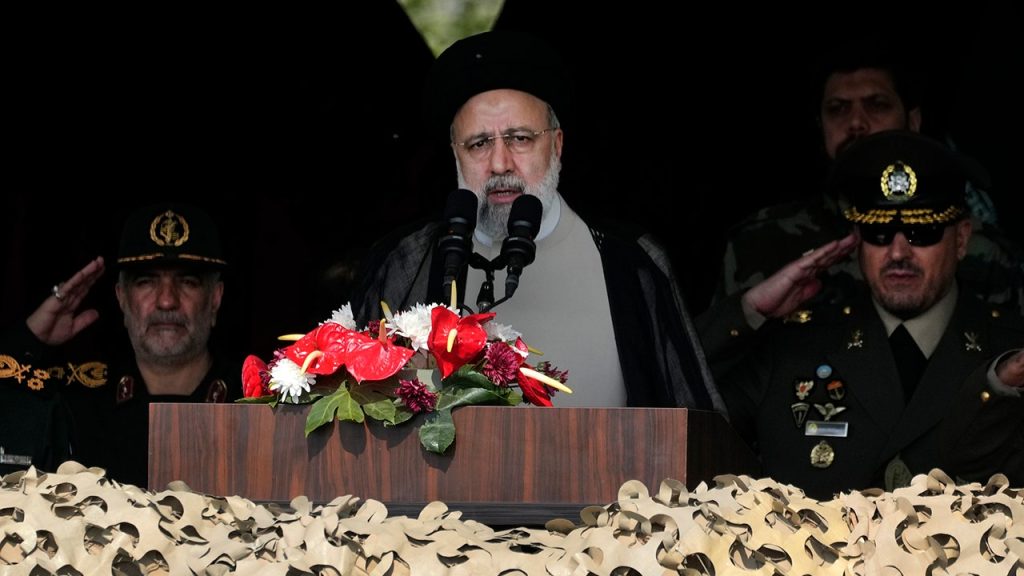Iranian leadership, led by President Ebrahim Raisi, is downplaying Israeli strikes against their country despite previously vowing total war in the event of the “tiniest invasion.” In a recent speech, President Raisi did not mention the Israeli missile strike launched against the Isfahan region of Iran, instead focusing on justifying Iran’s own offensive attacks. Operation True Promise, the code name for the Iranian drone missile and drone launch against Israel that took place last week, was the focus of Raisi’s speech, highlighting the authority, unity, and cohesion it brought to the country. This response was seen as necessary and a big honor, with all political groups and factions believed to be in agreement.
Iran launched hundreds of missiles and drones at Israel in response to an apparent strike on Iran’s embassy compound in Syria that killed 12 people, including two Iranian generals. Despite Israel’s successful interception of nearly every missile and drone with the help of the US, the UK, neighboring Jordan, and other nations boasting a 99% success rate through the use of its Iron Dome and David’s Sling systems, Raisi referred to the attack as a limited one. He also warned that if provoked further, Iran would carry out a bigger attack that would leave nothing remaining from the Zionist regime. This stance by Iranian leadership highlights a significant shift in rhetoric and disposition towards Israel moving forward.
The Iranian supreme leader’s decision not to address Israel’s retaliatory strike shows a significant gap between previous threats of total war and the country’s current stance on the conflict. The ongoing shadow war between Israel and Iran has escalated in recent months, with Iran’s support for Hamas leading to the deadliest terror attack in Israel’s history on Oct. 7. Despite this, Iran’s response to Israeli strikes has been more subdued, focusing on justifying their own offensive actions rather than escalating conflict further. The Israeli military’s successful interception of Iranian missiles and drones has also contributed to Iran’s decision to downplay the impact of Israeli strikes.
The White House has announced new sanctions on Iran following the recent attack against Israel, stating that the pressure on Iran will continue. The involvement of the US and other nations in supporting Israel against Iranian aggression has been crucial in preventing further escalation of the conflict. Iran’s limited response to Israeli strikes, coupled with the interception of most missiles and drones by Israel, has helped prevent a full-scale war between the two countries. However, the ongoing shadow war between Israel and Iran continues to pose a threat to regional stability, with both sides continuing to engage in proxy conflicts and military operations.
Moving forward, the relationship between Israel and Iran remains volatile, with the potential for further escalation still present. While Iran has downplayed Israeli strikes and emphasized the limited nature of their response, the threat of larger attacks looms if provoked further. Israeli military defenses have proven effective in intercepting Iranian projectiles, but the risk of casualties and damage remains high. The involvement of other nations in supporting Israel against Iran’s aggression is likely to continue, further complicating the already tense situation in the region. As both sides navigate the complex dynamics of the shadow war, the risk of a full-scale conflict remains a major concern for regional stability.


